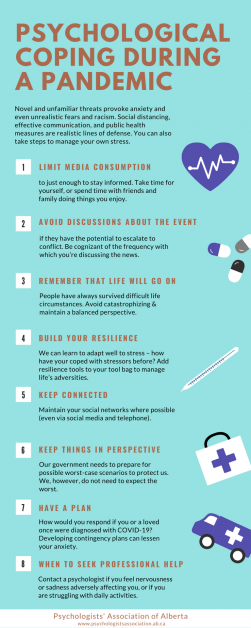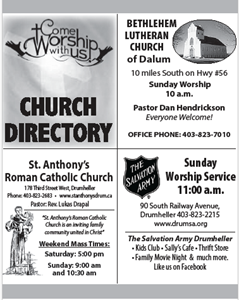
The COVID-19 pandemic is shaping up to be one of the largest challenges for the world this generation, and while there have been many measures put in place to protect ourselves physically, it is important to pay attention to mental health.
Rachel Dundas, executive director of Wheatland County Counselling and registered Psychologist notes this is an unprecedented time.
“It is a concern for everybody,” she said.
There are many worries from our own health and well-being, the economy, personal and financial security, as well as the challenges that come with social distancing and isolation.
“Novel and unfamiliar events promote anxiety in the public in general, and also unrealistic fears are quite common,” she said. “Social distancing can also lead to isolation, which can also exacerbate existing mental health conditions. Increased anxiety, decreased socialization can lead to depression or those types of concerns resurfacing.
She said the Psychologists Association of Alberta has released a set of tips to help people cope during a pandemic. One of the top strategies is to limit media consumption, just enough to stay informed and to avoid discussion about the event if these have the potential to escalate into conflict.
“Remember that life will go on,” Dundas says is one of the most important, “people have always survived difficult life circumstances.”
There is a lot of fear-mongering going on, especially on Facebook, people need to realize what people see on Facebook isn’t necessarily the truth. They should be following credible government websites for recommendations and information.”
During this crisis, most students are at home and most will have questions. Dundas says, it is important to be honest.
“Communicating honestly to children, in age-appropriate language is best. It’s okay to say you don’t know, and this has never happened before,” she said. “Helping them develop an at-home routine and keeping this predictable is also a suggestion. Reassuring them they are safe, being honest about risks (low) and not allowing your own anxiety to cloud how you interact (practice self-care).”
Another coping tool is to build your resilience. This includes looking at what has worked for you in the past or maybe adding new tools to manage adversity.
“Resiliency is our ability to face upsetting and difficult situations and then come out the other side. Often our biggest barrier to being resilient is our own thoughts,” Dundas said. “It is a lot of self-care; take a hot bath, write in a journal, do things like writing a coping statement on a card and read it three times a day, something along the lines of ‘I have been through difficult things before, I can get through this.’”
While she notes some information on social media can cause stress, the connections within your network are important. Maintaining social connections are an important part of coping, even if it is through the telephone, internet, or social media.
It is also important to keep things in perspective.
While governments are planning for the worst, we do not need to expect the worst.
For some, a good coping tool is to have a plan for how you would respond if you or a loved one is diagnosed. Developing a contingency plan can lessen anxiety.
Finally, she notes to know when to seek professional help. If you are struggling with activities, or your nervousness or sadness is adversely affecting your daily routine, it may be suggested to reach out to a healthcare professional or a psychologist.





















